
Socialistisk Biblioteks Tidslinje med links til begivenheder og personer i 1906.
Se også Index over personer, organisationer/partier og værker (som bøger, malerier, mm.), steder, begivenheder, mv., der er omtalt på hele Tidslinjen, titler og indhold på emnelisterne osv.
28. februar 1906
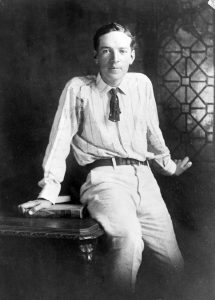
Upton Sinclair får udgivet romanen The Jungle (dansk: Junglen: Tilegnet Amerikas Arbejdere, 1906).
“.. gennembrudsbog ‘Junglen’ udkom i 1906. Den handler om de barbariske forhold i Chicagos kødindustri. Romanen, der vakte opsigt i både USA og i Europa, var baseret på studier og interviews og førte til en lovmæssig stramning af forholdene i den amerikanske kødindustri”. (Arbejderen.dk, 23.11.2002)
Se:
Portræt af den rå kapitalisme. Af Bjarne Nielsen (Arbejderen.dk, 11. juni 2011)
“Junglen”. Af Gustav Bang (Social-Demokraten, 23.7. + 30.7.1906; online på Marxisme Online)
The Jungle (Wikipedia.org)
The Jungle at 100. By Christopher Phelps (Against the Current, No.115, March/April 2005)
The fictitious suppression of Upton Sinclair’s The Jungle. By Christopher Phelps (History News Network, 20 July 2006)
Litteratur:
Bogen online: The Jungle (Marxists Internet Archive)
Junglen (Forlaget Sohn, 2011, 350 sider). Revideret udg. af Ella Melbyes oversættelse (1906)
Junglen (Modtryk, 1977, 295 sider) (Socialistisk Bogklub)
Se også på Socialistisk Bibliotek:
Tidslinjen: 25. november 1968, om Upton Sinclair.
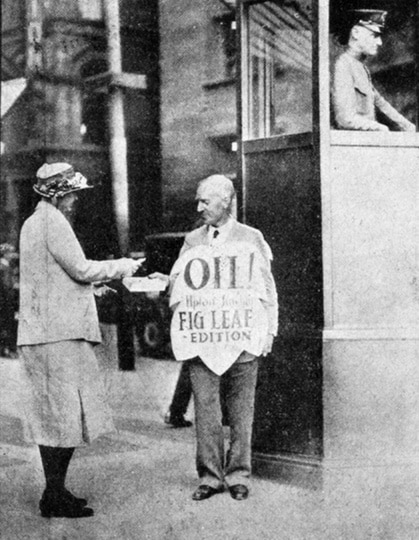
28. februar 1906
Første bind af Martin Andersen Nexøs roman Pelle Erobreren udkommer. Afsluttes i 1910.
Se:
Martin Andersen Nexø (personliste på Socialistisk Bibliotek). Med links til biografier, litterære artikler og værker (bøger og film).

Se også på Socialistisk Bibliotek:
Tidslinjen 26. december 1987 om den Oscar-vindende film Pelle Erobreren, instr. Bille August, herunder sammenligninger af film og roman.
1. marts 1906
Den vietnamesiske kommunist Pham Van Dong fødes i Quang Ngai provinsen (dør 29. april 2000 i Hanoi, Vietnam).
Premierminister i den Demokratiske Republik Vietnam (Nord-) 1955-1976 og det forenede Vietnam 1976-87.
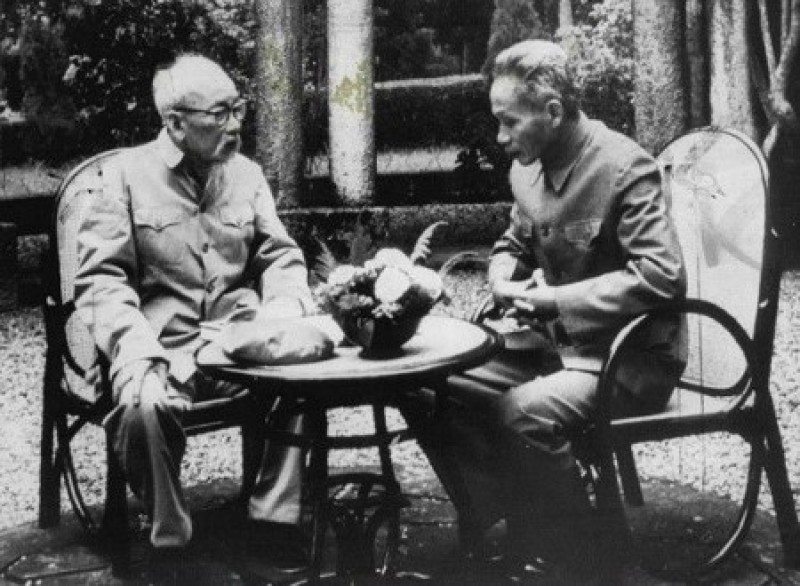
http://baoquangngai.vn/channel/2023/201602/qua-trinh-hoat-dong-cua-thu-tuong-pham-van-dong-2669536/
Se:
- Pham Van Dong (Leksikon.org)
- Pham Van Dong (Wikipedia.org)
15. (?) marts 1906
Emma Goldman udgiver i New York første nummer af magasinet Mother Earth: Monthly Magazine Devoted to Social Science and Literature (Published Every 15th of the Month) (1906-1928)
Se:
Mother Earth (Anarchist Archives), 8 issues onlline + Mother Earth Bulletin, vol. 1, no. 1-7, 1917-18, online.
Mother Earth (magazine) (Wikipedia.org)
Se også på Socialistisk Bibliotek:
Personliste Emma Goldman (1869-1940)

30. marts 1906
Med vedtagelse af Lov om Modarbejdelse af offentlig Usædelighed og Venerisk Smitte ophæves den reglementerede prostitutionskontrol, det legale erhverv.
Se:
Lov nr. 287 af 23. maj 1973 om bekæmpelse af kønssygdomme (Retsinformation.dk)
Lov nr. 47 om Foranstaltninger til at modarbeide den veneriske Smittes Udbredelse, 10. april 1874 (Danmarkshistorien.dk)
Den reglementerede prostitution, 1874-1906. Af Niels Nyegaard (Danmarkshistorien.dk, 2018). “Kontrolsystemet – den reglementerede prostitution – tillod, at kvinder blev indskrevet som ’offentlige fruentimmere’ og underkastet regelmæssige lægeundersøgelser, også mod deres egen vilje. Systemet var stærkt omdiskuteret og delvist grundlovsstridigt, og det blev ophævet i 1906.”
Debatten om den reglementerede prostitution, 1874-1906. Af Niels Nyegaard (Danmarkshistorien, 2017). “Fra 1874 til 1906 var prostitutionen i Danmark reguleret i et lovhjemlet kontrolsystem: den reglementerede prostitution. Kontrolsystemet lovliggjorde prostitution, så længe den foregik under politimæssig og lægelig kontrol. Systemet var stærkt omdiskuteret i 1880’erne og 1890’erne.”
Et socialhistorisk portræt af prostitutionen i København ca. 1874 til 1906 (pdf). Af Merete Bøge Pedersen (Kvinder, Køn og Forskning, nr.3, 2001, s.25-33; online på Tidsskrift.dk). “Prostitution har til alle tider ud-gjort et samfundsproblem. Artiklen tegner et portræt af “problemet” –af dets udøvere og af miljøet – i perioden fra 1874 til 1906, hvor der var vedtaget regler for tilsynet medde prostituerede.”
Se også:
Tidslinjen 8. november 1906 om “den store homoskandale 1906-07 nedenfor.
Linkbox: Prostitutions, sexkøb og venstrefløjen (Socialistisk Bibliotek)
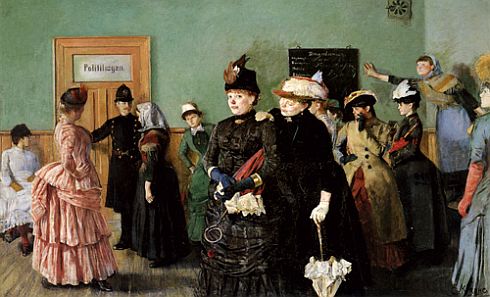
Se også:
- Albertine (Store norske leksikon)
- Christian Krohg (Wikipedia.no), med link til danske artikel.
6. april 1906
Norske forfatter Alexander Lange Kielland dør. (Født 18. februar 1849, se denne)
13. april 1906
Forfatteren Samuel Beckett fødes i Foxrock, County Dublin, Irland. (Dør 22.12.1989 i Paris, Frankrig).
Nobelprisen i litteratur 1969.

Se:
Samuel Beckett: poet of pessimism or herald of resistance? (Socialist Worker, Issue 1995, 8 April 2006). “The centenary of Samuel Beckett’s birth prompts a reassessment of his work from Sinead Kennedy.”
Samuel Beckett (1906-1989). Obituaries by Leslie Hill (Radical Philosophy, Summer 1990)
2. maj 1906
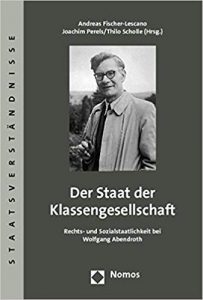
Den tyske marxist Wolfgang Abendroth fødes i Wuppertal. (Dør 15.9.1985 i Frankfurt a.M.).
Se:
Abendroth, Wolfgang (Leksikon.org)
Wolfgang Abendroth (Wikipeida.org). Kortere engelsk intro.
Wolfgang Abendroth (Wikipedia.de). Længere tysk – med links & litt.henvisninger.
Zum 100. Geburtstag von Wolfgang Abendroth (pdf) (Marburg Universitet, Unijournal, april 2006, 4 sider)
Litteratur:
Den europæiske arbejderbevægelses historie (Politisk Revy, 1974, 290 sider)
23. maj 1906
Den norske skuespilforfatter Henrik Ibsen dør i Kristiania [Oslo] (født i Skien, Norge, 20. marts 1828, se denne)
25. maj 1906
Den danske rådskommunist og fritænker Harald Andersen-Harild junior fødes (dør 22. juni 1980)
Se:
Andersen-Harild, Harald. Af Julius Wilm (Leksikon.org)
Arbejdernes Fritænkerforbund (Leksikon.org)
20. juli 1906
Vedtagelse i finske rigsdag om, at finske kvinder – som de første i Europa – får parlamentarisk stemmeret. (New Zealand var verdens første i 1892)
Se:
Finland 1906: The revolutionary roots of women’s suffrage – an International Women’s Day tribute. By Eric Blanc (John Riddell’s Blog, March 4, 2015)
Frøken Lucina Hagmann (Kvindestemmeretsbladet, 1. årg, nr. 9, 1907; online på Kvinfo)
Se også på Socialistisk Bibliotek:
- Emneoversigten Kønspolitik / Gender
- Emnelisten Kvindernes valgret
September 1906
Lev Trotskij formulerer i sin artikelsamling om den russiske 1905-revolution (Vor Revolution / Nasha Revoljusija) teorien om den permanente revolution i afslutningsartiklen Resultater og perspektiver / Itogi i Perspektivij
Links:
- Permanent Revolution (Marxists Internet Archive; Glossary of Term)
- Introduction to the on-line version of Permanent Revolution and Results & Prospects. By Sally Ryan (Marxists Internet Archive)
- Permanent Revolution (Wikipedia.org)
- Hvad er “Den permanente revolution”?: Grundlæggende postulater (1929). Af Leon Trotskij (Marxisme Online) + Hvad er “Den permanente revolution”? (Marxistisk Internet Arkiv, Danske afdeling)
- Tre teorier om den russiske revolution (1939). Af Leon Trotskij (Marxisme Online)
- The Permanent Revolution & Results and Prospects. By Leon Trotsky (Marxists Internet Archive). With introduction to the two books.
- Historic references on the theory of permanent revolution. Appendix 3 in: The History of the Russian Revolution, Vol.3. By Leon Trotsky (1932)
- Three conceptions of the Russian Revolution (1939). Appendix in: Stalin: An appraisal of the man and his influence. By Leon Trotsky (1941)
- Permanent Revolution (Wikipedia.org)
Debat / Debate:
Skandinaviske sprog:
Marxismen i Trotskijs ”Resultater og perspektiver”. Af Micael Löwy (Socialistisk Information, 7. oktober 2017). “Trotskijs teori om den permanente revolution, sådan som den blev skitseret for første gang i essayet Resultater og perspektiver (1906), var et af de mest forbløffende politiske gennembrud i marxistisk tænkning i begyndelsen af det 20. århundrede.”
Den permanente revolutions teori (pdf). Af Ole Stender-Petersen (Politica, årg.15, nr.4, 1983, s.435-458; online på Tidsskrift.dk). “Denne artikel rummer et rids af Leon Trotskijs teori om den permanente revolution. Teoriens udformning og elementer skildres på baggrund af de historiske forhold og ud fra Trotskijs personlighed. Han udarbejdede teorien med særligt henblik på tilbagestående lande (model: Rusland).”
In English:
What do we mean by … uneven and combined development? By Neil Davidson (RS21: Revolutionary Socialism in the 21st Century, February 25, 2014). “The radical novelty of what Trotsky meant by uneven and combined development is often underestimated. The most common mistake is to reduce it to, or confuse it with, the longstanding theory of uneven development.”
The relevance of permanent revolution: A reply to Neil Davidson. By Joseph Choonara (International Socialism, Issue 131, Summer 2011). “I will attempt to set out, as clearly as possible, what I think the theory means and what is left when the general aspects of the theory are disentangled from the context in which they were formulated.”
From deflected permanent revolution to the law of uneven and combined development. By Neil Davidson (International Socialism, Issue 128, Autumn 2010). “… as we shall see, reintegrating the law of uneven and combined development with the strategy of permanent revolution will help answer many of the unresolved questions raised by its ‘deflection’.”
Tony Cliff: Deflected permanent revolution in Africa. By Leo Zeilig (International Socialism, Issue 126, Spring 2010). “This article is not intended simply as a restatement of that theory. While it is outlined, the article seeks to explain the centrality of the theory for understanding the struggle for national liberation and, subsequently, the role of the intelligentsia in the developing world.”
Permanent Revolution. Part 1-3. By Esme Choonara (Socialist Worker, Issue 2168-2170, September 2009). About Karl Marx’s theory of revolution, the impact of Russia 1905 on Marxist theory and a period when workers did not lead and other groups followed their own agenda.
The Marxism of Trotsky’s ‘Results and Prospects’: A decisive break with the mechanical Marxism of the 2nd International. By Michael Löwy (International Viewpoint, 9 September 2006). “Trotsky’s theory of permanent revolution, as sketched for the first time in his essay Results and Prospects (1906), was one of the most astonishing political breakthroughs in Marxist thinking at the begining of the XXth century.” In Danish: Marxismen i Trotskijs ”Resultater og perspektiver” (Socialistisk Information, 7. oktober 2017).
The fading relevance of permanent revolution. By David Whitehouse (International Socialist Review, Issue 48, July–August 2006). “What follows is the barest sketch of an argument. It begins with the conditions in Russia and elsewhere that led Trotsky to formulate his theory, and continues with the changes that have made the applicability of the theory less and less general.” See response from Paul D’Amato: The necessity of permanent revolution (ibid.). “Much of what he says has nothing to do with the theory of permanent revolution as such, some things he says about the theory are either wrong or misrepresent it, and others are completely obvious and uncontested.”
The relevance of permanent revolution. By Michael Löwy (International Viewpoint, Issue 324, October 2000). “This theory has undoubtedly been one of the most significant and innovatory contributions to Marxism made by Trotsky in the 20th century. How did it emerge and what is its meaning today, at the dawn of a new century?”
Deflected permanent revolution. By Tony Cliff (International Socialism, No.12, Spring 1963). “Trotsky’s greatest and most original contribution to Marxism was his theory of Permanent Revolution. In this study the theory will first be restated. It will then be considered in the light of the colonial revolution experienced over the last decade or so. We shall be compelled to reject a large part of it.” In Danish: Den afbøjede permanente revolution (Modkraft Biblioteket). Også på Marxisme Online.
Bøger / Books:
Witnesses to Permanent Revolution: The Documentary Record. Edited by Richard B. Day and Daniel Gaido (Brill, 2009 / Haymarket Books, 2011, 682 p.). “The early debates about the contradictions of combined and uneven development, brought to life by a new translation of leading Marxists.”
Vittnen till den permanenta revolutionen (pdf) (Marxistarkiv.se, februar 2016, 212 s.). Översättning til svenska, bla. Day/Gaidos Inledning (s.5-40), och utom de delar som funnits översatta tidigar.
Anmeldelser / Reviews:
Review by Bill Jefferies (Marx & Philosophy Review of Books, 14 March 2014).
Democratic Revolution in Permanenz (pdf). By Lars T. Lih (Science & Society, Vol.76, No.4, October 2012, p.433–462; online at Postcapitalistproject.org/Internet Archive).
Permanent revolution and the battle for democracy. By Ben Lewis (Weekly Worker, Issue 926, August 9, 2012).
Revisiting permanent revolution. By Paul Le Blanc (International Socialist Review, Issue 82, March-April 2012).
Trotsky and permanent revolution. By Paul Hampton (Solidarity, Issue 219, 5 October 2011).
Permanent Revolution: past and future. By Paul Le Blanc (Europe Solidaire Sans Frontiéres, 13 June 2011).
Skipping stages. By Esme Choonara (International Socialism, Issue 128, Autumn 2010).
100 years of Permanent Revolution. Edited by Bill Dunn and Hugo Radice (Pluto Press, 2006, 257 s.). “This is a critical re-evaluation of two key Marxist theories: uneven and combined development, and permanent revolution. It brings together a formidable array of Marxist intellectuals from across the world including Daniel Bensaid, Michael Loewy, Hillel Ticktin and Patrick Bond.
Anmeldelser / Reviews:
Trotsky for the 21st century. By Judy Cox (International Socialism, Issue 111, Summer 2006).
Permanent revolution today. By Adam Turl (International Socialist Review, Issue 53, May-June 2007).
100 years on: the relevance of permanent revolution. By Luke Cooper (Fifth International, Vol.2, Issue 3, June 2007).
The Politics of Combined and Uneven Development: The Theory of Permanent Revolution. By Michael Löwy (Verso, 1981, 242 p. / Haymarket Books, 2010, 162 p.).
Anmeldelser / Reviews:
Trotsky’s theory of Permanent Revolution and its relevance to the third world today. By Alex Callinicos (International Socialism, No.16, Spring 1982, p.98-112)
Vicissitudes of a theory. By Dan La Botz (New Politics, No.51, Summer 2011, p.121-126).

Se også/see also:
Marx och Engels om permanenta revolutionen (pdf) (Marxistarkiv.se, 77 sider). Kap. 7-10 i Hal Draper, Karl Marx’s Theory of Revolution: The Politics of Social Classes, Vol. 2 (Monthly Review Press, 1978, p.169-287)
Uneven and Combined Development: modernity, modernism, revolution (pdf) (RS21: Revolutionary Socialism in the 21st Century, February 3-March 3, 2017, 91 p.; online at Internet Archive). “We are publishing a series of five pieces by Neil Davidson that explore [Trotsky’s theory’s] wider contribution to how we understand capitalist modernity.”
The dynamics of revolution. By Alex Callinicos (International Socialism, Issue 137, Winter 2013, p.127-148). Review of Neil Davidson, How Revolutionary Were the Bourgeois Revolutions? (Haymarket, 2012, 812 p.) + In defence of permanent revolution, by Dominic Alexander (Counterfire, 14 February 2013).
Se også på Socialistisk Bibliotek:
- Tidslinjen 9. januar 1905 om strejkebevægelsen i Rusland.
- Tidslinjen 17. december 1924 om Stalins teori om socialisme i ét land.
- Tidslinjen 7. november 1879 om Lev Trotskij.
- Tidslinjen 16. september 1906 nedenunder om Luxemburgs pjece om 1905.
- Emneoversigt Marxisme / Marxisme
- Emneoversigt Rusland / Russia
- Emnelisten Den Russiske Revolution 100 år
- Emnelisten Den Russiske Revolution, fra februar – oktober 1917
16. september 1906
Rosa Luxemburg udgiver pjecen Massenstreik, Partei und Gewerkschaften om erfaringerne fra bl.a. den russiske revolution i 1905.
Dansk:
Danske udgave online: Massestrejke, parti og fagforeninger (Marxisme Online)
Trykt udgave i: Rosa Luxemburg: Politiske skrifter: Et udvalg. Oversat og kommenteret af Toni Liversage (Tiderne Skifter, 1976, side 114-205)
Massestrejkedebatten (Leksikon.org)
Massestrejken. Af Hans Erik Madsen (Socialistisk Arbejderavis, nr.352, 1. maj 2016, s.16) (serie: Socialisme for begyndere)
In English:
The Mass Strike, the Political Party and the Trade Unions (Marxists Internet Archive)
An introduction to Rosa Luxemburg’s The Mass Strike. By Alastair Stephens (Counterfire, 13 January 2013)
Rosa Luxemburg and The Mass Strike. By Sally Campbell (Socialist Worker (UK), Issue 2278, 19 November 2011)
Notes on Rosa Luxemburg’s ‘The Mass Strike’. By Martin Thomas (Workers’ Liberty, 14 May 2010)
The Mass Strike. By Helen Scott (Socialist Worker (US), Issue 674, June 13, 2008)
M is for mass strike. By Mark Thomas (Socialist Review, June 2008)
Rosa Luxemburg & the Mass Strike. By Lea Haro (Against the Current, No.118, September-October 2005)
Introduction [to an extract from Mass Strike, Party & Trade Union]. By Tony Cliff (International Socialism, No.21, Summer 1965; online at Marxists Internet Archive)
Se også på Socialistisk Bibliotek:
- Emneoversigten: Marxisme / Marxism
- Emneoversigten: Tyskland / Germany
- Personlisten: Rosa Luxemburg (1879-1919)
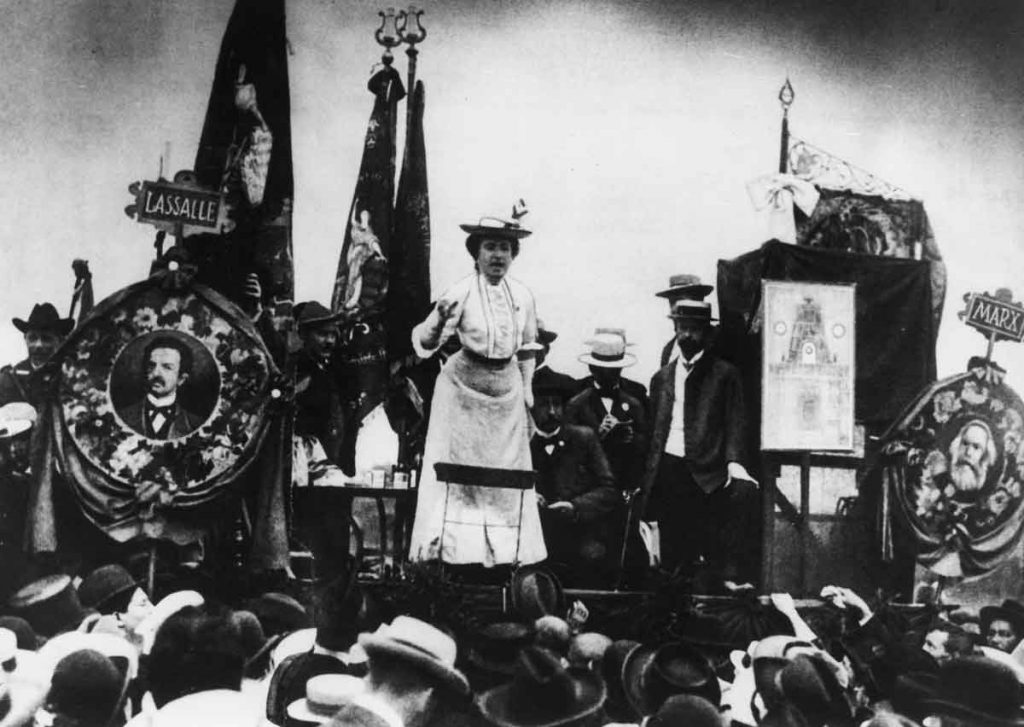
16. september 1906
Socialdemokratisk Ungdomsforbund (SUF) stiftes. Bliver grundstammen i nov. 1919 i Venstresocialistisk Parti. Februar 1920 dannes så Danmarks Socialdemokratiske Ungdom (DSU).
Se:
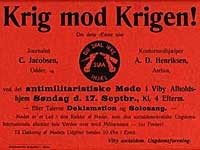
Socialdemokratisk Ungdomsforbund (Plads til os alle; Oppositionen i arbejderbevægelsen; online på Arbejdermuseet.dk)
Danmarks Kommunistisk Ungdom (DKU) (Leksikon.org)
Litteratur:
Socialdemokratisk Ungdomsforbund SUF 1906-21. Af John Bech Thomsen (Historievidenskab, nr. 8, 1976, s.7-86)
Se også på Socialistisk Bibliotek:
Tidslinjen 13. maj 1991 om DKU.
25. september 1906
Den russiske komponist Dimitri Sjostakovitj fødes, 12. september ifølge gamle tidsregning (dør 9. august 1975). Komponerede 7. symfoni (“Leningradsymfonien”) i 1942.
Leksika mv.
- Dmitrij Sjostakovitj (Denstoredanske)
- Dmitrij Sjostakovitj (Wikipedia.dk)
- Dmitri Shostakovich (Wikipedia.org)
Artikler (på engelsk)
Shostakovich’s Leningrad Symphony was a defiant counterblast to Nazi aggression. By Simon Behrman (Jacobin, June 22, 2021). “Performed in a city under siege, Dmitri Shostakovich’s Leningrad Symphony symbolized popular resistance to the Nazi invasion. A complex work with several layers of political meaning, the symphony was a high point of twentieth-century classical music.”
Music and the Russian Revolution. By Sabby Sagall (Socialist Review, Issue 430, December 2017). “The social and political turmoil surrounding the First World War and the wave of revolutions across Europe produced some of the most radical modernist music. Sabby Sagall outlines key figures in the movement and looks at debates among revolutionaries about ‘working class culture’.”
Zanchevsky, Zakrevsky or Zakovsky? By Sheila Fitzpatrick (London Review of Books, Vol.38, No.4, 18 february 2016). Review of Julian Barnes, The Noise of Time (Cape, 2016, 184 p.; dansk udgave: Tidens støj, Tiderne Skifter, 2016, 202 s.). “The Noise of Time is a brilliant impersonation, both as a novel and as a portrayal of the ‘real’ historical Shostakovich.”
A concert of early and rare Shostakovich. By Fred Mazelis (World Socialist Web Site, 3 December 2013). “The First Symphony, the earliest composed of the works on the program, was an instant success when it premiered in Leningrad in 1926.”
The enigma of Shostakovich’s Leningrad Symphony. By Verena Nees (World Socialist Web Site, 12 September 2012). “A memorable concert took place 70 years ago. On August 9, 1942, Dmitri Shostakovich’s Seventh Symphony, the ‘Leningrad’, was performed in the city of Leningrad, now St. Petersburg. At the time, the city had been besieged by German troops for more than a year and its inhabitants subjected to relentless starvation.”
Shostakovich. By Louis Bayman (Socialist Review, Issue 349, July/August 2010). Review of Simon Behrman, Shostakovich: Socialism, Stalin & Symphonies (Redwords, 2010, 128 p.). “It is Behrman’s achievement that his book places Shostakovich’s biography within such a wide-ranging analysis of music, 20th century history and cultural debates, and marries the excitement of great music with that of radical action.”
A complex socialist composer. By Alex Miller (Frontline, Vol.2, No.7, June 2008). Review of Laurel E. Fay, Shostakovich: A Life (Oxford University Press, 2005, 458 p.). “… a balanced and sober biography of a highly complex man and artist, who was neither a closet anti-Communist nor a simple dupe of the Soviet bureaucracy.”
Shostakovich, the musical conscience of the Russian Revolution, Part One + Part Two (In Defence of Marxism, 20-22 December 2006). “Alan Woods attempts to show Shostakovich as he really was: a great Soviet artist who used music to express the terrible and inspiring events of the period in which he lived, a man of the people who believed in the possibility of a better world under socialism.”
The sound of a Soviet tragedy (Socialist Review, Issue 309, September 2006). “Simon Behrman looks at the music of an artist whose life was intertwined with the fate of the 1917 revolution.”
Shostakovich: Revolutionary life, revolutionary legacy. By Harry Patterson (Weekly Worker, Issue 365, December 21, 2000). “A rich legacy of recordings of his finest works has appeared throughout the year, many of them of an earlier, pre-digital, pre-stereo vintage. It is worthwhile assessing some of these important historical recordings in the light of what we now know about this most complex of musical figures.”
The legacy of Dmitri Shostakovich: Clarifying a confused debate. By Fred Mazelis (World Socialist Web Site, 7 April 2000). “A quarter century after his death, interest in the works of Soviet composer Dmitri Shostakovich has never been greater, while the debate over the relationship of this music to the history of the twentieth century continues to rage.”
Litteratur:
Sjostakovitj – en sovjetkunstner. Af Mikkel Thrane Lassen (Multivers, 2022, 594 sider). Se anmeldelse af Bent Blüdnikow: Han var et af det 20. århundredes største genier, men blev knækket af Stalin (Berlingske.dk, 2. februar 2022).
Tidens støj. Af Julian Barnes (Tiderne Skifter, 2016, 202 sider). Se anmeldelse af Thomas Petersen (Historie-online.dk).
Se også på Socialistisk Bibliotek:
- Emneoversigten: Musik / Music
13. oktober 1906
“Syndikalismens fødsel”. Den franske fagbevægelse CGT vedtager på sin kongres i Amiens ikke at engagere sig politisk og vedtager programmer Amiens-charter (Charte d’Amiens).
Se:
Syndikalismens historie i årstal og tekster (Syndikalister.dk)
Syndikalisme (Leksikon.org)
Syndicalism (Wikipedia.org)
På fransk (Marxists Internet Archive):
C.G.T.: Charte d’Amiens
C.G.T.: Congrés d’Amiens sur les rapports entre entre les Syndicats et les Partis politiques
2. november 1906
Den kommunistiske italienske filminstruktør Luchino Visconti fødes i Milano. (Dør i Rom 17. marts 1976).
(Rocco og hans brødre, 1962 , Leoparden, 1965, Døden i Venedig, 1973)
Luchino Visconti (Denstoredanske.dk)
Luchino Visconti (Wikipedia.dk)
Luchino Visconti, 1906-1976. Dansk site viet mindet om den italienske film- og teaterinstruktør Luchino Visconti.
Lions and jackals. By Lindsey German (Socialist Review, Issue 275, June 2003)
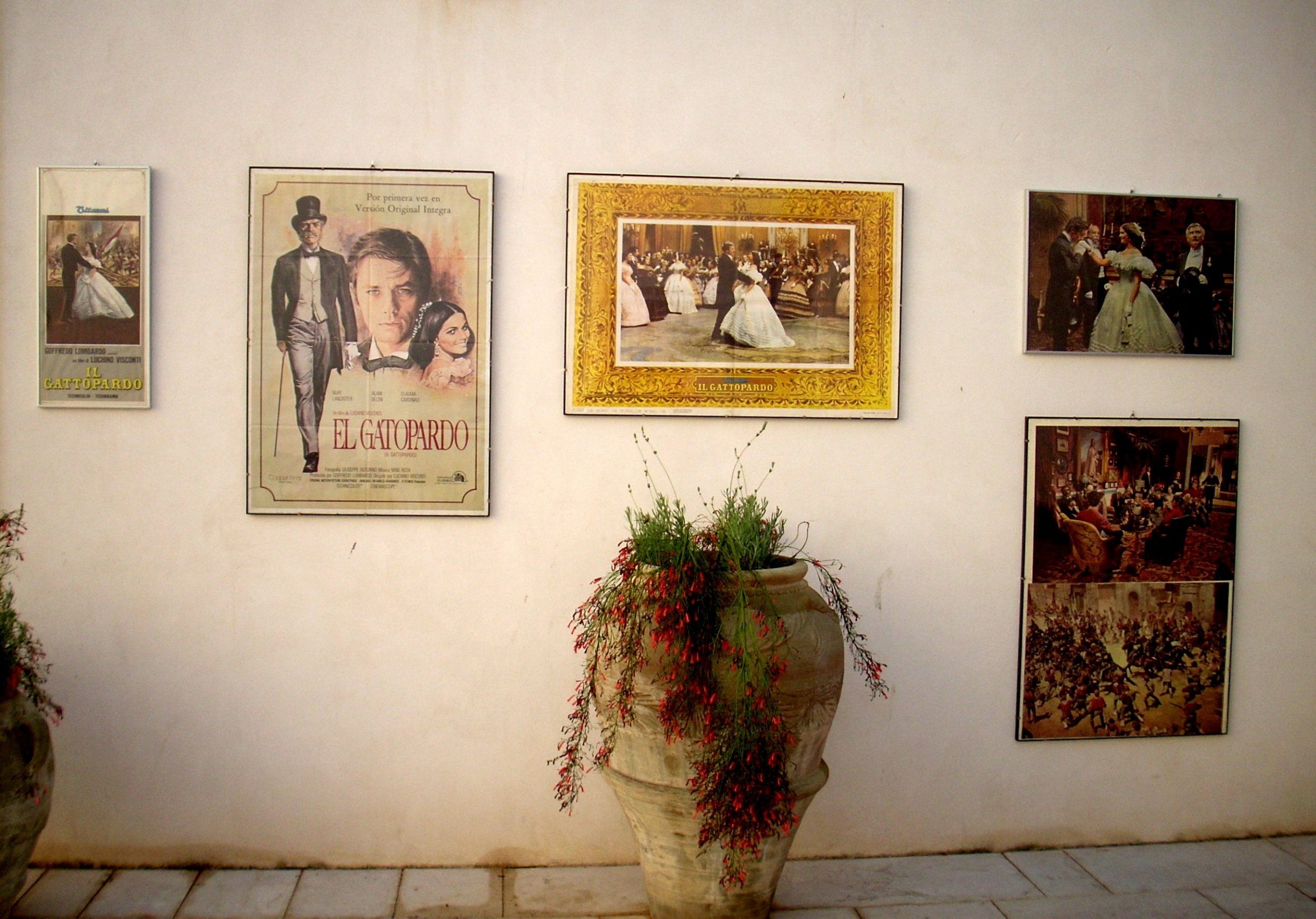
8. november 1906
Vendepunktet i “den store homoskandale” da sagen “udviklede sig fra at være en relativ lille og ubemærket undersøgelse prostitution blandt yngre arbejderklassemænd til at blive “… undersøgelse af retssag om sex mellem mænd” til danmarkshistoriens hidtil største og mest omdiskuterede retssag om sex mellem mænd … “da tandlægen Emil Aae blev anholdt for “omgængelse mod naturen” (sex mellem mænd og mand/dyr, men ikke mellem kvinder) og angav ca. 70 navne fra Kbhvn’s middel- og overklasse, der blev domfældte 1.10.2007 …. den største retssag om sex mellem mænd … og en unik begivenhed i dansk retshistorie”*
* Kilde: Den store homoskandale. Af Niels Nyegard (Aarhus Universitetsforlag, 2021, side 4-8 (100 danmarkshistorier). Bogen gennemgår også dansk homohistorie. Med Indholdsfortegnelse, Litteratur og Noter online.
Materiale til bogen: Den store homoskandale. Temaer, artikler og kilder, litteratur & eksterne links: Danmarkshistorien.dk
Københavns homoseksuelle borgerskab: Arbejderpressens beskæftigelse med Den store Sædelighedssag i 1906-07 (pdf). Af Niels Nyegaard (Arbejderhistorie, nr. 2, 2020, s.64-88).
Se også Tidslinjen 30. marts 1906 ovenfor.
19. december 1906
Leonid Ilyich Brezhnev fødes (dør 10. november 1982). Generalsekretær i SUKP 1964-82.
Se:
Bresjnev, Leonid Ilic (Leksikon.org)
















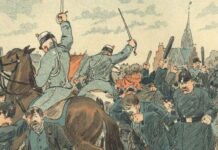
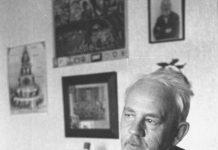

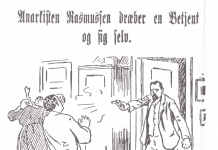














Hi to all, as I am in fact eager of reading this website’s post to be updated regularly.
It includes good material.
Comments are closed.